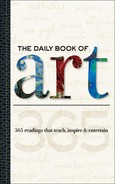Friedrich Wilhelm Nietzsche (1844-1900)
THE GODS ARE ALIVE
“With eyes strengthened and refreshed by the sight of the Greeks, let us look upon the highest spheres of the world around us.”
—Nietzsche, The Birth of Tragedy, 15

Nietzsche is very influenced by the work of Schopenhauer. Nietzsche agrees with his predecessor that intellectual and artistic endeavors create a kind of illusion that helps us understand our existence. He’s also a pessimist like Schopenhauer, viewing life as essentially tragic. Naturally, then, he has a soft spot in his heart for ancient Greek drama.
He is fond of Athenian tragedies mainly because of their skillful balancing of two fundamental human forces, represented by the Greek gods Apollo and Dionysus. The Apollonian force refers to reason, morality, and the rigid classification of ideas, while the Dionysian embodies a primal energy, arising from the libido, that defies the intellect and passionately drives people toward intoxication.
Nietzsche criticizes philosophical inquiry for neglecting the Dionysian force in its Apollonian obsession with conceptualizing the world. He sees humanity protecting itself in an illusion that is too safe, lacking the vigor of tragedy. His hope is for a Dionysian revival where people transcend traditional values and live more freely.
Stemming from these views is Nietzsche’s love of art and creativity. Art came before philosophy and remains a truer, more raw expression of life’s essence. As long as it bears all the tension and tragedy of our predicament, Nietzsche believes art will prevail as a potent source of human understanding. —CKG
QUESTIONS TO PONDER
• Do you believe that our world is too focused on reason and control?
• What modern art forms effectively convey the Dionysian spirit?

